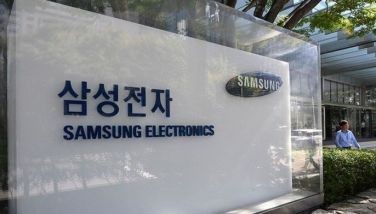Interactive Technology As A Campaign Juggernaut
March 28, 2001 | 12:00am
Yet, some editorial analyses have put forth the notion that an argument can be made for an absence of any bona fide corruption scandal that ultimately toppled the beleaguered president in a second People Power revolution. Short messaging replete with icons, emoticons and vowel-free lingo expressing hysterics, pundits claim, was the real reason behind the successful overthrow.
Wireless tech heads could be so happy; cellular phone distributors so lucky that their communication appliance had played such a key role in local historical events. But for outsiders to play down such seminal events in the chronicles of Philippine political history and reduce their significance to a series of roaming text messages likened to rumor-mongering is, at the very least, campy. To suggest that perhaps in these Byzantine times, a Philippine leader on the brink of expulsion should shop around for a text-messaging cell phone is, at most, impudent.
With predictions of a weakening US economy and distended rumors of a recession, however, the country faces weaker demand in the world market for its computer chips and other equipment. Since the Philippines is also one of the biggest oil importers in Asia, this ultimately translates into unexpected wallops to its already fragile structure with the mere rippling of worldwide oil prices. A lowered country rating has also crippled its ability to attract fund managers to get the Philippines back on the indices of their investment portfolios.
As if this isn’t difficult enough, the new US Treasury Secretary, Paul O’Neill, vows to press the International Monetary Fund to step up its whistle-blowing custody over nations that it believes to be headed toward financial disaster. Since this is tantamount to public humiliation and an exposé of what would otherwise be a local corruption scandal, the IMF is loathe to making public a malfeasance list. It readily broadcasts countries given "good housekeeping" seals, but generally believes that exposing bad fiscal intelligence would simply produce the effect of a massive pullout of investors’ money and touch off another Asian crisis. But, O’Neill has declared in no uncertain terms to IMF leaders that if something is rotten, he will exercise the US’ majority shareholding powers to full authority. If that insinuates political inconvenience for the de facto government, tough luck. It seems that the vibrant tech sector can then be the only true saving grace in staying in the pink, both economically and politically.
His reason for his visit to the home of the Wildcats, together with Democratic Senator Russ Feingold, was to talk about the evils of "soft money" and how these unregulated campaign contributions from wealthy individuals and corporations have allowed special interest groups to curry favor with the powers that be. Soft money, in recent years, claims the McCain-Feingold campaign reform bill, has corrupted American politics in an unprecedented manner.
While special favors for certain pharmaceutical companies have resulted in pushing up prescription drug prices, government efforts to curb the inundation of drugs from Mexican cartels are far from convergent. While the government policy on tobacco manufacturing and marketing has remained limp and saddled with soft money, so has environmental policy been compromised by big corporations’ campaign contributions. On an optimistic note, McCain recognized AOL-Time Warner as the strongest corporate advocate for a ban on soft money.
McCain’s candid speech was well-received by some 300 students and faculty and made more enjoyable by such self-effacing remarks as "I’m doing pretty well for someone who finished fifth from the bottom of my class, eh?" This, of course, belies the former five-year POW’s outstanding naval aviation service record following in the tradition of his father and grandfather, both distinguished four-star admirals in the US Navy.
An interesting anecdote in McCain’s political career reveals his "somewhat subversive strategy" for election campaigning – taking advantage of new-wave Internet technology. In his ’82 and ’86 senatorial drives, McCain recognized the "revolutionary potential of the medium" and was said to have conducted the most victorious promotional Internet operations.
Salon.com, an online magazine that dabbles in political punditry, concluded that his cyber-campaign was the one carried out most successfully among all legislative challengers. McCain’s interactive website Straight Talk America http://www.mccain2000.com provides a nifty snapshot for all the senator’s political positions punctuated with punchy, italicized quotes and blurbs, with numerous interrelated links to federal websites and a schedule of past and future engagements.
The website’s 6-F background and patriotic red, white and blue motif is easily navigable, with minimal images and a link to various webcasts of the senator’s appearances for his campaign reform rallies. The sound and movement webcast of his most recent Town Hall meeting requires a Windows Media Player application program and can be accessed at mms://lumen.it.northwestern.edu/medill/medill2_12_01.wmv.
The usefulness and effectiveness of McCain’s website is best delivered through its interactive segment. A viewer is able to log on to a section that receives questions, comments, positions on issues, and short notes that reflect the viewer’s monitoring of the elected official’s actions in office. Within 24 hours, through e-mail, responses to questions are given, position actions are outlined, or thanks are proffered.
In many cases, contrary to popular belief, congressional and senatorial offices are (or should be) organized to handle constituent correspondence in such a manner that they are logged and summarized to be able to determine the strength and direction of public opinion on any given issue. Technology, electronic mail in particular, has made correspondence more direct, more interactive, less time-consuming, more paperless, and more convenient for legislators and constituents alike. (To be concluded)
BrandSpace Articles
<
>
- Latest
Latest
Latest
Recommended
























